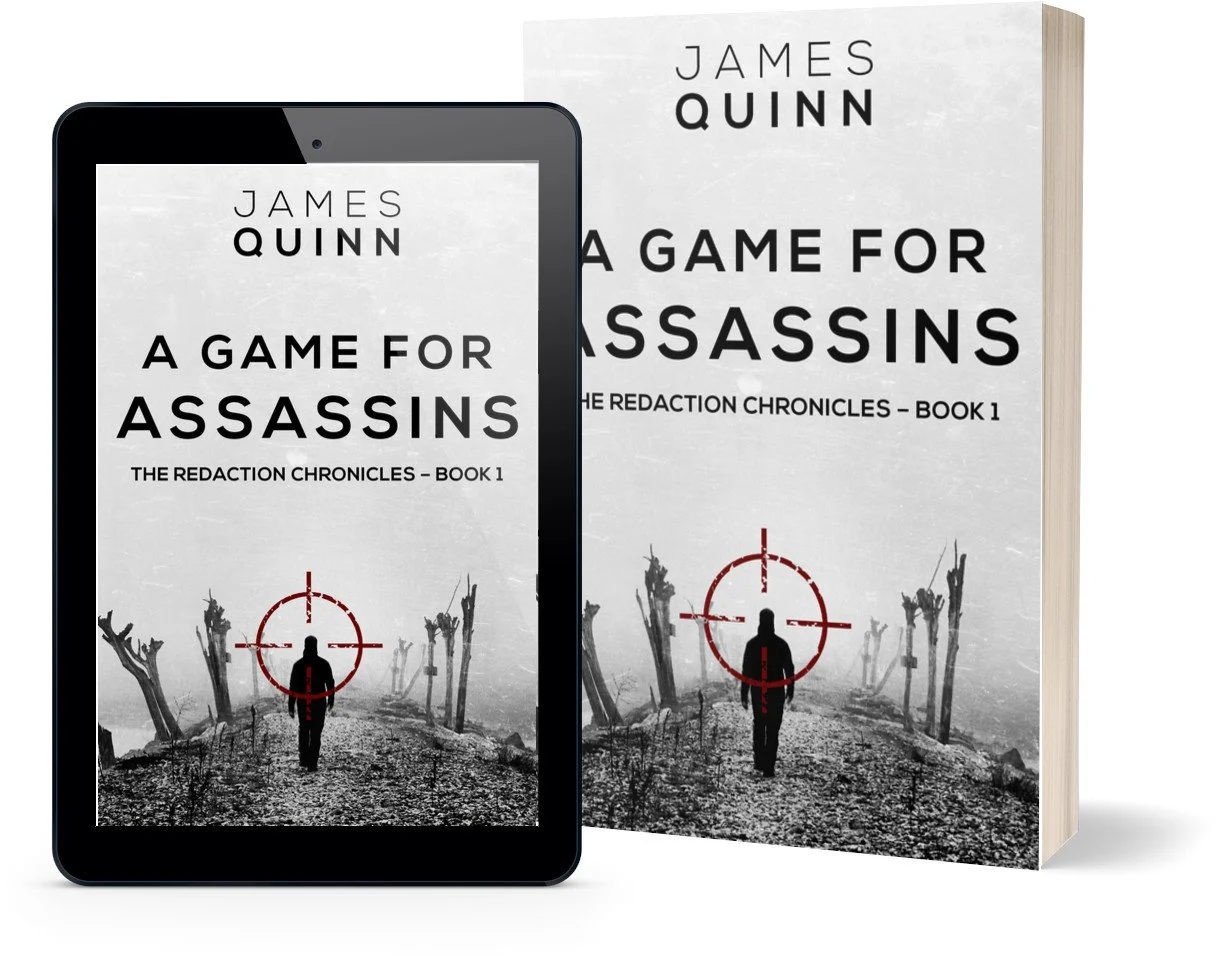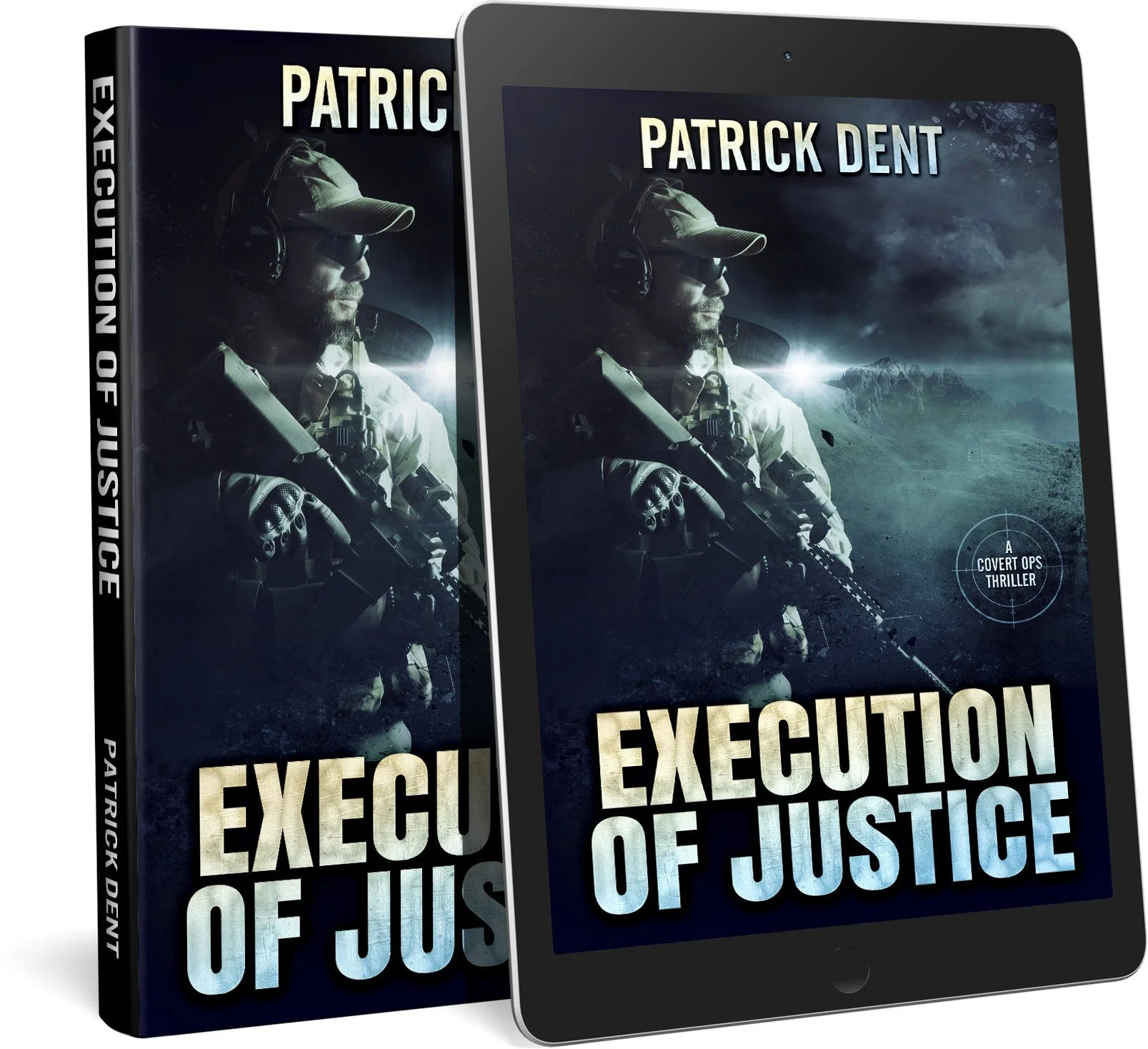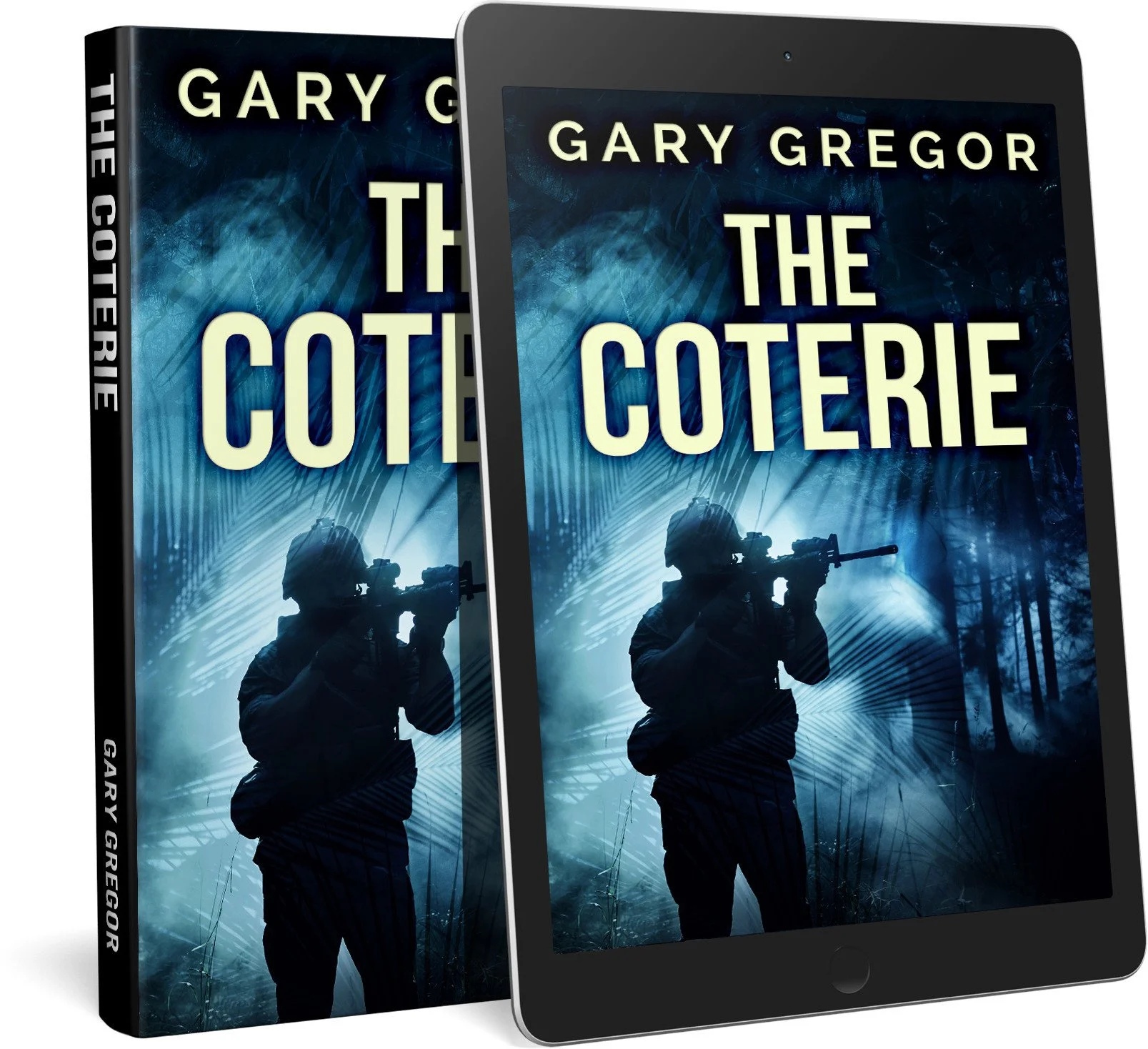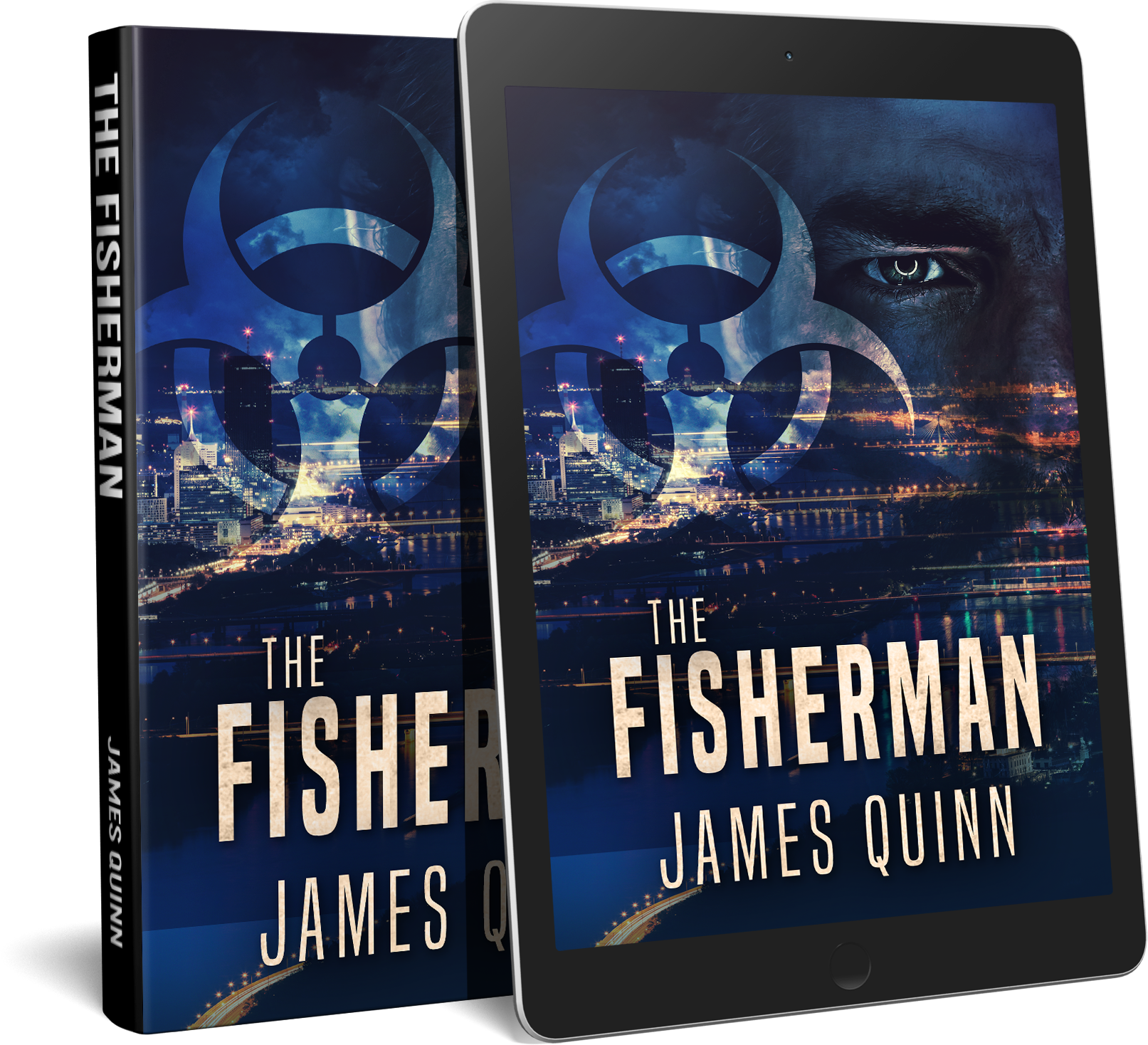The best spy novels from Next Chapter [March 2023]
Spy fiction generally involves espionage as the main context or plot device. First books in this genre were published in the early 20th century, as modern intelligence agencies such as CIA and KGB established. Espionage thrillers are loosely related to adventure fiction and political military thrillers, although they have their own distinct flavor.
Below, you’ll you’ll find some of the best spy novels novels from Next Chapter as of June 2022. All of our books are available in eBook and paperback, and most in audio as well.
If you enjoy one of the stories below, please don’t forget to leave the author a review! Don’t agree with our choices? Please leave a comment and let us know your favorite :)
Books featured on this page
A Game For Assassins (The Redaction Chronicles Book 1) by James Quinn
The Desolate Garden (Heirs And Descendants Book 1) by Daniel Kemp
Burned Up (Ryan Chaise Book 1) by Stuart G. Yates
The Standard (The Standard Book 1) by John Reinhard Dizon
Black Ops: Zulu (Tom Stiles Thrillers Book 1) by Arthur Bozikas
The Fisherman (The Fisherman Series Book 1) by James Quinn
A Game For Assassins (The Redaction Chronicles Book 1) by James Quinn
Book excerpt
Leopoldville, Republic of the Congo – November 1960
The CIA agent QJ/WIN had arrived in Leopoldville operating under the name of Lucien LeClerc. His cover was that of a French businessman from Marseilles, who was looking to import agricultural machinery from Europe in order to assist the Congolese economy. His travel papers were valid for the next three months and in that time, he was expected to travel across the region, visiting businessmen, government ministers and local political leaders. In truth, he had no intention whatsoever of doing any of this. His real mission was much more interesting.
He had first been recruited in the late 1950's, following a successful career as a smuggler. Two large Americans had visited him at his apartment one evening with an interesting proposition. “Thanks for agreeing to meet with us. I'm Frank and this is Tony,” said the larger and meatier-faced of the two. “I'm the guy fighting the Commies; Tony here is fighting the drug war. We have a proposal for you.”
It had started from there. Because of his underworld contacts across Europe, especially with the Corsican and Sicilian drug gangs, he had been an excellent agent to infiltrate himself into a network involving Chinese Communist heroin that was being given freely with the clear understanding that it must be flooded into the United States. As an Agent Provocateur, Marquez had been exceptional. He had bought his way into the deal using American funds and had arranged for collection points and private transport en route. Of course it had all been a ruse and on a given date, the shipments had been intercepted by the US Coast Guard, but more importantly several of the main arterial routes into the USA had been compromised, with several others being placed under surveillance.
Following the counter-narcotics operation, he had been approached six months later and met with an overweight, almost obese CIA man in Rome. The man looked like a disheveled drunk, but he had a confidence and swagger about him that hinted at hidden resources and tenacity. “Call me Bill,” the CIA man had said as they dined on seafood at the Restaurant Villa Venezia, a small, family run place a stone's throw from the Vatican.
“I liked what you did for us against those Chinese commies, nice work. I'd also like to thank you for some of the potential agents you’ve talent spotted for us. I'm in charge of a new outfit. We deal with Executive Action, which is a bullshit euphemism for getting our hands dirty in covert operations. I think you're the type of guy that we'd like to have working with us.”
Marquez had been put on the payroll, a nice monthly retainer and all he had to do was establish enough cover to be classed as deniable to the overt world. The Congo operation was his first mission and although he was listed as an Executive Action department agent, he would in truth be seconded to the CIA's Africa Division for the duration of the project.
The ride from the airport into Leopoldville had brought back old memories of his time in Africa, not here in the Congo, where he was unknown, but in other regions of the Dark Continent; Chad, Nigeria, Algeria, Dakar. The smell, the noise, the heat; all gave Africa its own unique pulse. The drive through the streets did nothing to dispel any of these sensations and also confirmed what he had already been told by the CIA; the Congo was sliding slowly into a whirlwind of chaos and feudal fighting with the military on the streets and militias in the back rooms.
Marquez had booked himself into the Intercontinental Hotel, a large, high-rise slab of concrete in the center of the city. It was the hotel of choice for businessmen, journalists and visiting VIP's. He left his suitcase in the room and immediately ordered a taxi from the hotel reception. His first port of call was to be his briefing with the CIA station chief, Deakin. The venue was a one-bedroom apartment in Binza, a suburb of Leopoldville and one of the many safe-houses the Agency kept for covert meetings. The knock on the door and code phrase gained him entrance to the inner sanctum of the safe-house.
“You clean? No surveillance on you, they're pretty easy to spot. They trail around together like a bunch of virgins at a frat party.” Deakin was the archetypical CIA case officer thought Marquez, young, sleek and a smooth operator. They made themselves comfortable with Deakin playing the host and pouring the drinks; coffee, black and strong.
“So, Langley wants me to give you the edited version of events here and then brief you on your mission while you’re in country.” Deakin lit a Camel cigarette and relaxed back into his chair, readying himself to deliver the intelligence briefing.
The Desolate Garden (Heirs And Descendants Book 1) by Daniel Kemp
Book excerpt
We ate breakfast from the arranged dishes set out in the din-ing room and, whilst I ate heartily of scrambled eggs and sau-sages, I marvelled at her small appetite; one piece of dry toast, a small bowl of cereal with imitation milk and an equally small bowl of pears. I felt obliged to eat more than I would have normally, as if to distance myself from her, and spare cooks concern.
“I’ll see Mrs Franks, the housekeeper, mid-morning and order dinner. That way, everyone knows who will be required and for how long. I prefer seven-thirty for dinner. I’ll tell cook not to prepare so much tonight. Perhaps you would like to share my plate? It would save on the washing-up for the kitchen staff.”
“I was about to compliment you, Harry, but your sarcasm is not welcome. I’m too polite to comment on your own pig like consumption. Are you jealous H, or is it that you’re insecure in your own body?” With that now charismatic cant of not only her head, but rebuke, she chided me.
“I’m perfectly content, thank you. I was worried about you and your obvious anorexia and how it is to affect my kitchen. I don’t want cook going to all her efforts to feed you, when lettuce and a few radishes would suffice. Would that do you for tonight’s dinner?”
“If your questionable humour would take a break for a while, and if you are asking what I would like to eat at dinner, then pork would be lovely with loads of crackling and all the trimmings. Then, if I am unable finish it all, I can at least im-agine you there wallowing in the gravy. But, have no fear Harry. I will be hungry by eight, ravenous like a horse!” I had not missed the emphasis on the eight. It was the beginning of the bantering between us; however, Judith normally got her own way.
I sought out Mrs Franks and ordered tea, coffee for Judith, a light lunch of vegetable soup for her and beef and pickle sandwiches for me at eleven, and dinner, as instructed, at the revised time. I then joined my uninvited guest in the library to face my inquisition.
Burned Up (Ryan Chaise Book 1) by Stuart G. Yates
Book excerpt
Alex Piers’s wife was out. Nothing odd in that, she always was. Most mornings, virtually every night. Amy, their eight-year-old daughter, had gone to summer school. The house echoed to the sound of his shoes as he crossed the wide entrance hall and went straight into the kitchen. An empty, lonely house. He poured himself some ice-cold water from a bottle in the fridge, leaned back on the worktop and looked out through the large patio windows to the swimming pool.
He stared at the pool, his mind an empty shell. For too long he’d thought about where it had all gone wrong, how he could turn it all around, make her love him again. But he knew this would never happen. It was burned too deep. The deceit. The lies. Too much had been said to ever make it all right again.
Two weeks ago, as Amy started summer school, his wife came out with the news.
“We’re going back.”
Alex felt as if he’d been hit by a bus. All the strength left his legs. He collapsed into a chair. Numb, he listened to her. “It’s not working, you know it’s not. And it’s not good for Amy, listening to us rowing all the time.” We hardly ever row, you bitch – you’re never here! He heard the words in his head but from his mouth only silence. “So, it will be best for everyone if we go back at the end of summer. I’ll see my solicitor, get all the paperwork done. All you’ll need to do is sign.”
Mind swirling, he managed to ask the question he already knew the answer to: “With him?”
“What?” Her voice, always so cutting, so sharp. Treating him like an imbecile. Perhaps he was.
He drew in a deep, quivering breath. “Are you moving back with him?”
“Yes. But that’s not the reason.”
Even though he knew this would be the answer, to hear it from her lips cut deep. Leaning forward, he put his face in his hands. “I can’t allow that, Diane. You can’t just walk out of my life with Amy – to live with him.” He’d recovered a little now. Panic, mixed with anger, it all came to the fore. Uncontrolled, ill-thought, ill-judged.
Execution Of Justice by Patrick Dent
Book excerpt
Langley, Virginia
Special Agent Fulton fumed with tension, though it was barely ten a.m. He had already removed his jacket and loosened his tie. He had no time for formalities. These days he arrived anywhere from six to six thirty in the morning and worked until seven or eight at night. Fulton didn’t fear hard work. He had just one fear – failure. A successful execution of Project Crossfire would be a career milestone for him. And time worked against him constantly. He had much to do. His secretary buzzed in, “Sir, Mr. Carlton is here.”
“Thanks, Joyce. Please send him in.”
Carlton entered the room with obvious trepidation. As he approached Fulton’s desk, he removed a handkerchief from his back pocket and mopped sweat from his shining pate. He wore his typical work clothes – a starched, blue Oxford shirt, pressed khaki pants, and penny loafers. Fulton suspected the penny loafers would be replaced with well-worn boots as soon as Carlton returned to his car.
The two men exchanged greetings, Fulton poured them each a cup of coffee, and after a few minutes of small talk, they got down to business. “Mr. Carlton, first I want to thank you for coming in,” Fulton began. “Second, I’d like to dispel some common misconceptions people have regarding the CIA, if you’ll permit me.” Fulton walked around to Carlton’s side of the desk and sat on it with one leg, creating a more intimate connection with Carlton. “Most people form their perceptions of the CIA based on Hollywood. They assume the CIA abounds with duplicitous spies, secret agents, assassins, and other nefarious characters.
“The truth is we’re predominantly bureaucrats, but bureaucrats who pay well when we put work out for contract. Our specifications are quite demanding, as you will soon see. Few can adhere to them.” Fulton paused before continuing. “I understand you are an excellent metal worker, with a top-notch crew.”
“Well, I’ve been in the business for twenty-two years, and have over two hundred years experience in my team. I’d say we’re pretty much up for any challenge,” Carlton responded. Fulton pleasantly noted Carlton’s even voice and his relaxed posture. He took Carlton at his word.
“Mr. Carlton, the job I have in mind will require an extraordinary understanding of metal stresses and strains, as well as heat stability. The tolerances are what I consider ‘world class’. You’re not likely to encounter limits tighter than ours.”
“What is the project, by the way?” Carlton ventured.
Fulton handed Carlton a schematic representing a small part of a picture that, in its entirety, was known only to Fulton and a handful of technicians. Carlton located a small piece of paper with a large dollar figure stapled to the last page. He only took a quick glance, enough to count the zeros. “I need three sets of cylinders, one hundred forty six each, built to these specifications,” Fulton said.
Carlton studied the schematics for some time. Carlton’s expression of shock when he reached the last page made Fulton smile. Carlton finally responded, “Wow, these babies are tough! May I ask what they are to be used for?”
“Mr. Carlton, this is the CIA. We pay well because we require the highest quality in the world. And, as you may have surmised, we strongly dissuade curiosity. Am I making myself clear?” Fulton stared directly into Carlton’s eyes for several seconds.
“Yes sir, I understand.”
“Excellent, then. Will you take the job?”
“Mr. Fulton, for what you’re offering, I’d be a fool not to.”
“I’m just looking for the word ‘yes’, Mr. Carlton.”
“Yes,” Carlton replied.
“One other thing, Mr. Carlton,” Fulton said, leaning forward on his elbows, “This project has an extremely aggressive timeline. I’ll need the first hundred and forty six units delivered within the next ninety days, with each subsequent set delivered every sixty days.”
Carlton couldn’t quite conceal his shock. “Mr. Fulton, I’d have to drop every other project I have, and work my men double time to meet those requirements.”
“Welcome to the CIA, Mr. Carlton. I don’t think the math should be difficult. This is not a difficult business decision for you. I suspect you know other contractors who can take over your existing projects.”
After staring at his lap for about a minute, Carlton looked up into Fulton’s eyes and said, “It’ll take me a week to clear my schedule. Can we agree that the clock starts ticking next Monday?”
The Standard (The Standard Book 1) by John Reinhard Dizon
Book excerpt
Days had passed since the release of Jack Gawain from Maghaberry HMP and his briefing by Captain William Shanahan and other agents of MI6 in Montreal, Canada. The legendary Canadian city became the meeting place of yet another group who would be establishing the groundwork for the global catastrophe to be known as Operation Blackout.
The speech by Tea Party Chairman Paul Wallace in New York City was the trigger the attendees of the meeting had been awaiting. The meeting was confirmed by cell phone and e-mail shortly after the nationally publicized press conference held by the Tea Party. Though the speech had tremendous ramifications for governments and financial institutions around the world, it was of vital importance for this particular group.
Wallace had announced that the Tea Party would use its national influence to urge Republican leaders to take immediate steps in initiating a long-awaited return to the gold standard by the United States of America. The grand strategy was to appoint a Gold Commission that would supervise the linkage between the dollar and the Federal gold reserve. It would be a last-ditch effort by the government to restore balance to the Federal budget in the face of a worldwide Depression.
“The creation of a Gold Commission will provide us with a cornerstone in establishing a worldwide gold standard in this new century,” Wallace declared before the world press in a speech held at a conference room at the New York Stock Exchange. ‘It will restore the financial security and economic independence of the American people and the global community. It will liberate us from the insolvency of the paper dollar foisted upon us by financial wizardry and banking conglomerates. It will return the control over our economic future from Wall Street to Main Street across the country. It will save our Social Security system, restore fiscal control over State budgets across America, bring a halt to energy prices and restore price stability to the stock market. It would ensure the financial stability of our middle class, end the Great Recession, and guarantee us a four percent annual increase in national economic growth.”
He urged Congress to unite behind Republican and Tea Party leaders in their efforts to pass legislature restoring the gold standard and creating a Gold Commission. Only a concerted grassroots movement by the American public, he insisted, could counter the effects of an impending global depression that could lead to the financial destruction of world governments in months to come.
The Coterie by Gary Gregor
Book excerpt
The media began descending on the park before dawn. Chapman never ceased to be amazed at how the press hounds found out about such events, almost, it seemed, before the police did. There were plenty of theories within the department as to how news, good or bad, managed to find its way to the various arms of the media as quickly as it did, and none of them had anything to do with efficiency. Not the least fancied of these was the offering of incentives by the media to a select few police officers in return for a discreet, timely telephone call.
It was a scenario that angered Chapman, and many other cops like him. However, wisdom born of experience had taught him that his opinions on the matter were never going to change the way things were. Personal profit was, and always would be, a powerful motivator. He considered the often-used term ‘media circus’ to be apt as he watched the rapidly building frenzy of activity just beyond the newly erected crime scene cordon.
Cameramen, reporters, sound crews and assorted media gophers jostled for the best vantage point, all vying for that exclusive interview or that classically gruesome front-page photograph. Over his years in the job, Chapman had known of more than one forensic photographer to be offered inducement to part with graphic photos taken in the process of evidence-gathering. Journalism, and the accompanying ratings which determined its worth, was stimulated by aggressive competition, and while there were always going to be a couple of bad eggs in the basket, he could only hope the vast majority of his fellow officers maintained a healthy strength of character and integrity when dealing with the media.
* * *
Detective Constables Grahame Smith and Bob Sanderson, the other half of Chapman’s four-man investigation team, arrived with a portable lighting plant and a portable tent shelter which they had collected from the Star Force offices themselves. Apparently, unless there posed an immediate threat to life or property, Star Force was staying in bed.
Smith and Sanderson began the business of erecting the tent over the scene and firing up the lighting plant. Soon, the hum of the generator was just audible above the noise of the wind, which seemed to have intensified in the last few minutes. The immediate area around the body was instantly bathed in an artificial glow, adding a carnival-like hue to the macabre scene.
Next to arrive was a forensic specialist, a young man Chapman had seen around the corridors of Headquarters but had never actually met. He was new to the forensic unit and had, up until tonight, never worked on any of the same cases as Chapman. Both men nodded a greeting to each other and Chapman watched with interest as the younger man huddled under the tent and assembled his photographic equipment. Shortly after, he emerged from the tent and began photographing the area in the immediate vicinity, shielding his expensive camera equipment as best he could from the rain.
Eventually, he re-entered the tent and took more photos of the body from a number of different angles and aspects. Some would be enlarged and all of them would be studied in minute detail over and over again by Chapman and his team during the ensuing investigation. None of the photographs would find their way into the hands of the media without his express authority; not on his watch, of that Chapman was certain.
As Chapman waited for the photographer to finish his work, Tony Francis returned, together with Smith and Sanderson. They had managed to obtain two umbrellas and the four detectives huddled together under the barely adequate shelter. They made a pitiful-looking group, all of them soaked to the skin, and all of them hunkering down against the elements. This was one of the downsides to police work and, as they waited for the completion of the forensic formalities, Chapman massaged at an arthritic shoulder and wondered silently if, at sixty-two years of age, he might be too old to consider the merits of alternative employment.
Dr. Keith Rogers was one of five medicos employed by the state government and attached on a rotating roster system to the police department. Being called out to perform preliminary examinations and to certify death at scenes such as this, was just one of the duties that fell within his job description. His name had rotated to the top of the list and he did not look particularly pleased to be there.
Black Ops: Zulu (Tom Stiles Thrillers Book 1) by Arthur Bozikas
Book excerpt
“Hello, Tom, and pleased to meet you, Vic. I’m Senior Constable Peter Collins and this is Constable Amanda Hawkins,” he said after Tom introduced Vic.
“Pleased to meet you both,” replied Vic, with a smile.
“How are those black eyes, Tom?” asked Collins.
“I’m just happy to be alive at the moment.”
“You have a beautiful house, Vic,” Tom heard Constable Hawkins saying as they walked down the hallway.
“So, you run your business from home? From appearances, it must be very successful?” Collins asked, as he looked around in awe.
“Yes, this is our seventh year in business and we’re still on the rise,” Tom said.
“Weren’t you the man who uncovered the fraud at that internet company? What was it again? ScamTell? That was a whole lot of money there!”
“Yes, and that discovery was the making of my business.”
“God, now I know why I remember your face. You’ve done some work for the local police department.”
“Yes, and the state government.”
Before sitting down, Collins took out a digital recorder, turned it on, and explained the process of Tom’s responsibilities in recording his statement. Tom noted the device was basically antique. He wondered how the police kept up with all the high-tech crime out in the ether world of the net—the fraud, the laundering and the sixteen-year-old kids who were millionaires from cyber scams. Part of his work was to look into these worlds, and though he was no computer expert, he knew how to follow a trail. He had done that in Afghanistan as well but there he’d faced guns, not gamers.
“Okay, thank you. For the record, interview held at 357 Vaucluse Road, Vaucluse, with Tom Stiles. As you know, Tom, both Constable Hawkins and I are heading the investigation into Wednesday’s accident, during the morning of March 1, 2006, at approximately four am,” Collins read out loud from his black leather, pocket-sized diary after removing it from his shirt top pocket.
“I would request that you refrain from answering until after I have read out all the details. Now, the vehicle that you were driving, Tom, was a black in colour four-wheel drive, current year model BMW X5 with registration plates STIL02. You were stopped at traffic lights on the intersection of New South Head Road and Bellevue Road, when a 1979 model, dark green MG Convertible with private registration plates of MG 1979 rear-ended you. Why had you stopped?”
“Red lights, but I recall I must have been pretty tired because I actually got spooked out of a daydream by lightning, and recall pressing the brake paddle even harder while waiting for the lights to go green.”
“Can you recall where you were coming from, Tom?”
The Fisherman (The Fisherman Series Book 1) by James Quinn
Book excerpt
Professor Pavel Zeman was twenty minutes into his team briefing when the pain hit him low in the stomach. He reeled, tried to recover and hold it together, but the grimace on his face and the perspiration on his brow told his audience that something was wrong.
In front of him in the conference room sat his development team of thirty people, each an expert in their chosen scientific field and all under his direct control to bring the project to fruition. As Senior Technology Development Manager of the Pandora Project, Professor Pavel Zeman’s role was to give the regular weekly briefing on how the tech was developing, any problems and when they could expect to carry out the final batch of tests before completion.
He had spoken on the current problems facing the overheating of the catalysts and how the next generation of 3D printed parts would be available soon for them to test. He presented a slide on the silent hypersonic engine of Pandora and how it was in advance of anything that the Chinese and Americans had. The team had laughed because they knew that the Americans were remedial in hypersonic research and development and that they were so far behind the curve that it wasn’t even funny anymore.
He had talked through the success that they were having, the engineers and the electrical experts, on harnessing the electrical current propulsion system and its backup engines. He had read out the findings of the ‘stealth team’ and their production of the quantum holographic shell casing that provided Pandora with a level of invisibility.
Finally, the good news; he had field reports from the north of the island, where the team responsible for the development of the next generation of ‘liquid metal’ bullets that supplied Pandora’s rail-gun armament system informed him that the bullets were holding their integrity against a variety of robust targets.
Professor Zeman looked them all over, then watched as they made notes on pads and studied him gravely. He stated that the project was running behind schedule and that the data that he meticulously studied, analysed and presented told him that it would be another year before the project would be finished. The weapons and the stealth systems were in place – but the most important part of Pandora, the hypersonic element, the speed that they hoped would be eight times the speed of sound, was sadly in a state of hiatus.
There you go - the best spy novels from Next Chapter in 03/2023. We hope you enjoy the stories - and if you do, please leave a comment below, or a review in Goodreads or your favorite store. It would mean a lot to us!


















Praesent id libero id metus varius consectetur ac eget diam. Nulla felis nunc, consequat laoreet lacus id.